Rellify White Papers


AI for the entire content value chain: Company-specific AI models linked to general AI models such as ChatGPT
The large language model ChatGPT in direct comparison with the Rellify Custom Language Model Neuraverse™: Which model makes content strategy and topic identification easier?
In the past year, ChatGPT has made an astonishing triumphal march in marketing: Thousands of marketers use the tool for a wide variety of tasks. Text creation is certainly the main focus, but we are increasingly hearing from customers and prospects that ChatGPT can also be put to solid use for content strategy and topic identification.
Customers who already do this naturally ask themselves why they need a custom language model like the Neuraverse™. Since ChatGPT is practically free, a legitimate question is: Can the Neuraverse™ identify relevant topics and required content more solidly than ChatGPT?
To demonstrate the advantages of a custom language model like the Neuraverse™ over ChatGPT, we put it to the test using the example of our customer Best Egg, which uses a Neuraverse™.
See for yourself what weaknesses ChatGPT has in the development of a content strategy and topic identification and why a company-specific, proprietary custom language model like the Neuraverse™ gives you a massive advantage over your competitors when it comes to topic identification!
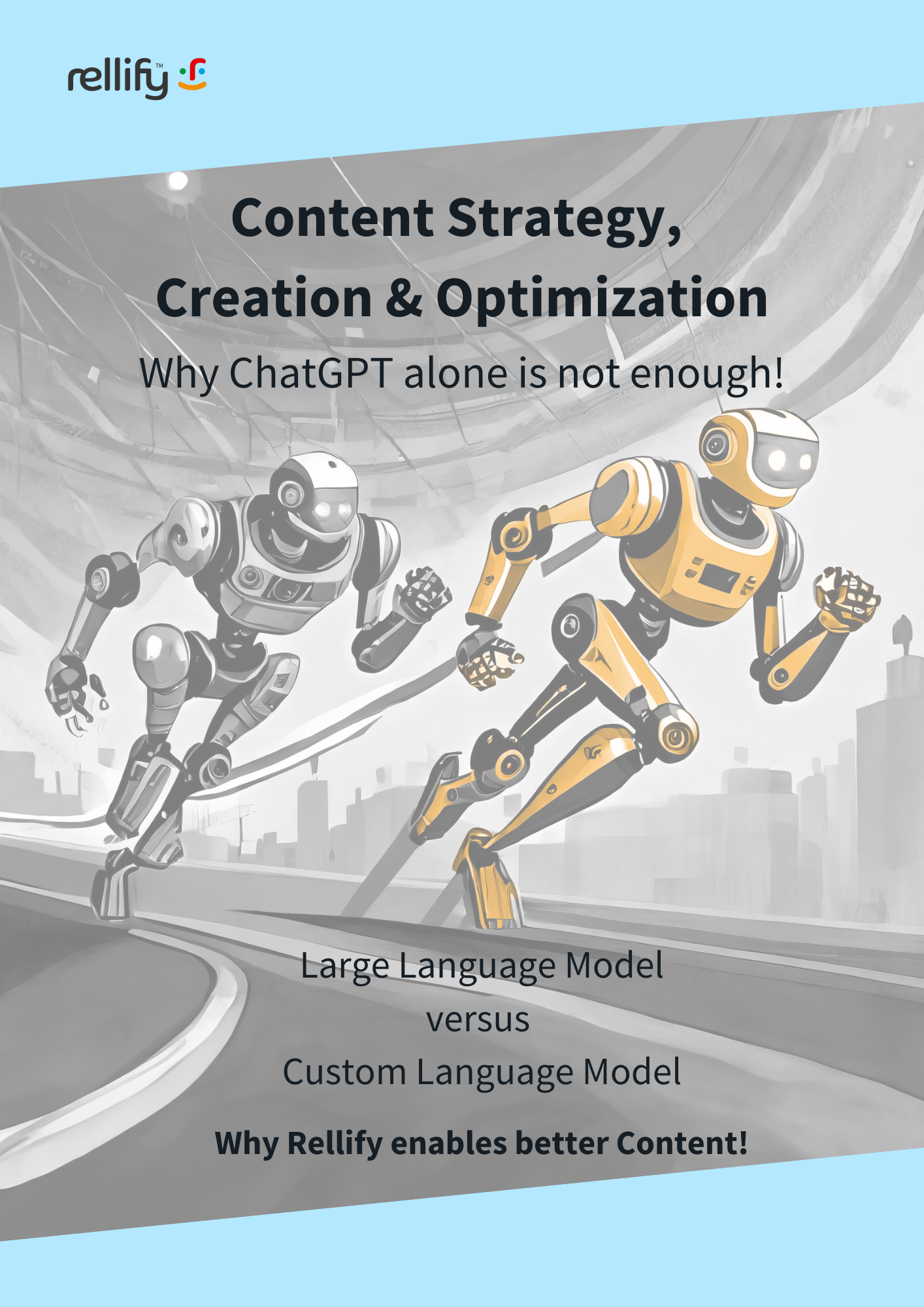
Whitepaper: “Supercharged AI” for the next generation of content intelligence

AI for the entire content value chain: Company-specific AI models linked to general AI models such as ChatGPT
In the field of content marketing, we are currently experiencing an increasing use of generative AI, such as ChatGPT. Essentially, AI is used to quickly generate content based on a few prompts. This leads to a massive production of synthetic content, which is usually well-written but not differentiated and authentic in terms of commodity content.
It is therefore becoming increasingly important to differentiate your content, which requires a data-driven approach to identifying relevant topics and trends. Typically, this involves a manual process supported by tools such as Google Trends or SEMRUSH. But these methods for topic ideation and planning do not employ intelligent deep learning. As a result, they lack the robust neural-network understanding of data needed to produce content that stands out from the competition.
The Neuraverse™ is a completely new approach to systematically using AI for the ideation and topic discovery phase: The Neuraverse™ shows – at a glance – what is worth writing about and why the resulting content will be strategically important or essential. This saves a lot of time in the development of topic architecture and content strategy.
Learn in this whitepaper by Prof. Dr. Peter Gentsch how companies can “supercharge” existing large language models, adapt them to their specific corporate needs, and outperform their competition by using their own, proprietary corporate language models.
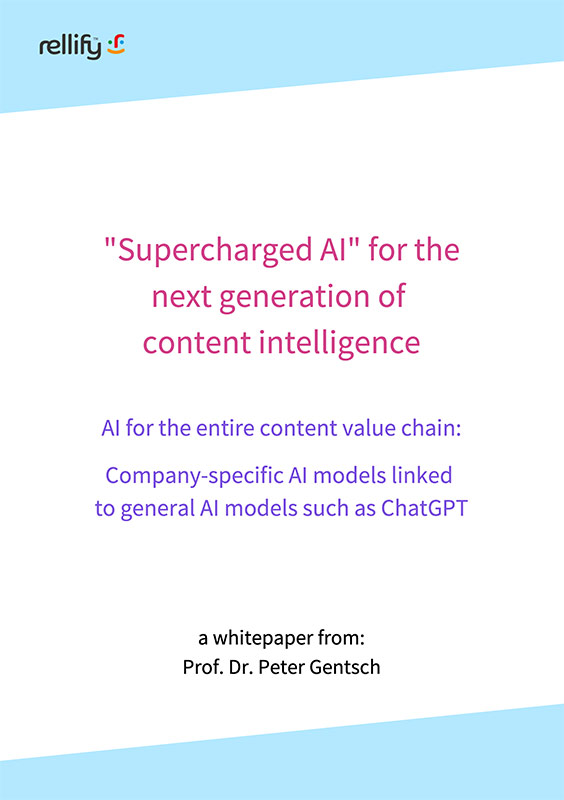
STUDY: Man versus machine – who writes the better content?

Machines write better than agencies and humans. This is the result of a new study by the Institute for Conversational Business at Aalen University. In the study, landing pages, blog posts and social media posts of international TOP brands were compared with AI-generated alternatives.

Prof. Dr. Peter Gentsch
Aalen / Cologne, 28.09.2022 – Artificial intelligence writes better marketing texts than humans in agencies – this is the result of a study conducted by Aalen University under the leadership of AI expert Prof. Dr. Peter Gentsch. “According to both the subjective evaluations of our test group of a good 100 people and the objective results of the Flesch metric, the variants of the compared marketing content written by artificial intelligence are better than their originals,” says AI researcher and pioneer Prof. Dr. Peter Gentsch.
As part of the study “Man or machine: Who writes the better content?” Gentsch at the Institute for Conversational Business at Aalen University selected and analyzed landing pages, blog posts and social media posts from Telekom, Vodafone, Garnier, L’Oreal, M&Ms and Starbucks. Then, the AI content platform of the MarTech startup rellify was used to find the relevant topics and keywords for this content. Based on the results of this AI analysis, OpenAI’s AI writing platform GPT-3 was then used to produce new content on the topics and keywords of the original content.
“We then presented the AI texts and the originals to 100 randomly selected people for evaluation,” Gentsch said of the study design. “At the same time, we classified the original texts and the AI versions according to the scientifically accepted Flesch metric.”
The results of both evaluations were as clear as they were astonishing, says AI expert Gentsch: “According to both the subjective and the objective evaluation, the AI-generated texts were slightly to significantly better. From the subjects’ point of view, the AI texts were not only easier to read and more appealing, but also surprisingly ‘more personal’,” Gentsch summarizes the survey results. But the AI-generated content also generally performed better in terms of the Flesch Index, he says: “In terms of objective readability, the machine-written texts are consistently better, in some cases even significantly better.”
Despite these results, however, AI today is not yet per se a better author than a professional copywriter or an agency, Gentsch emphasizes: “It still doesn’t work without human influence.” On the one hand, the machine-generated input from the AI ideation phase would have to be checked and possibly “filtered” or cleaned up by hand. For another, he says, fine-tuning the prompts and parameterizing the GPT-3 platform is absolutely critical to success. “Only a fact check can ensure that any factual errors in the writing AI are detected and cleaned up,” the professor said.
Gentsch therefore also relativizes the thesis postulated at the beginning that machines would text better than humans. The human factor is still decisive for the quality of the results of AI-supported content creation, he concludes: “Human expertise is still needed for setting up the AI, but above all for quality assurance and fact checking. At the same time, however, the study also shows that with this support, better results can be produced in less time – and thus at lower cost. My prediction is therefore that the tasks in content creation will shift – in the future, humans will be needed less for the actual copywriting, but will focus more on strategic aspects, the story line and always also the quality assurance of the intelligent machines.”
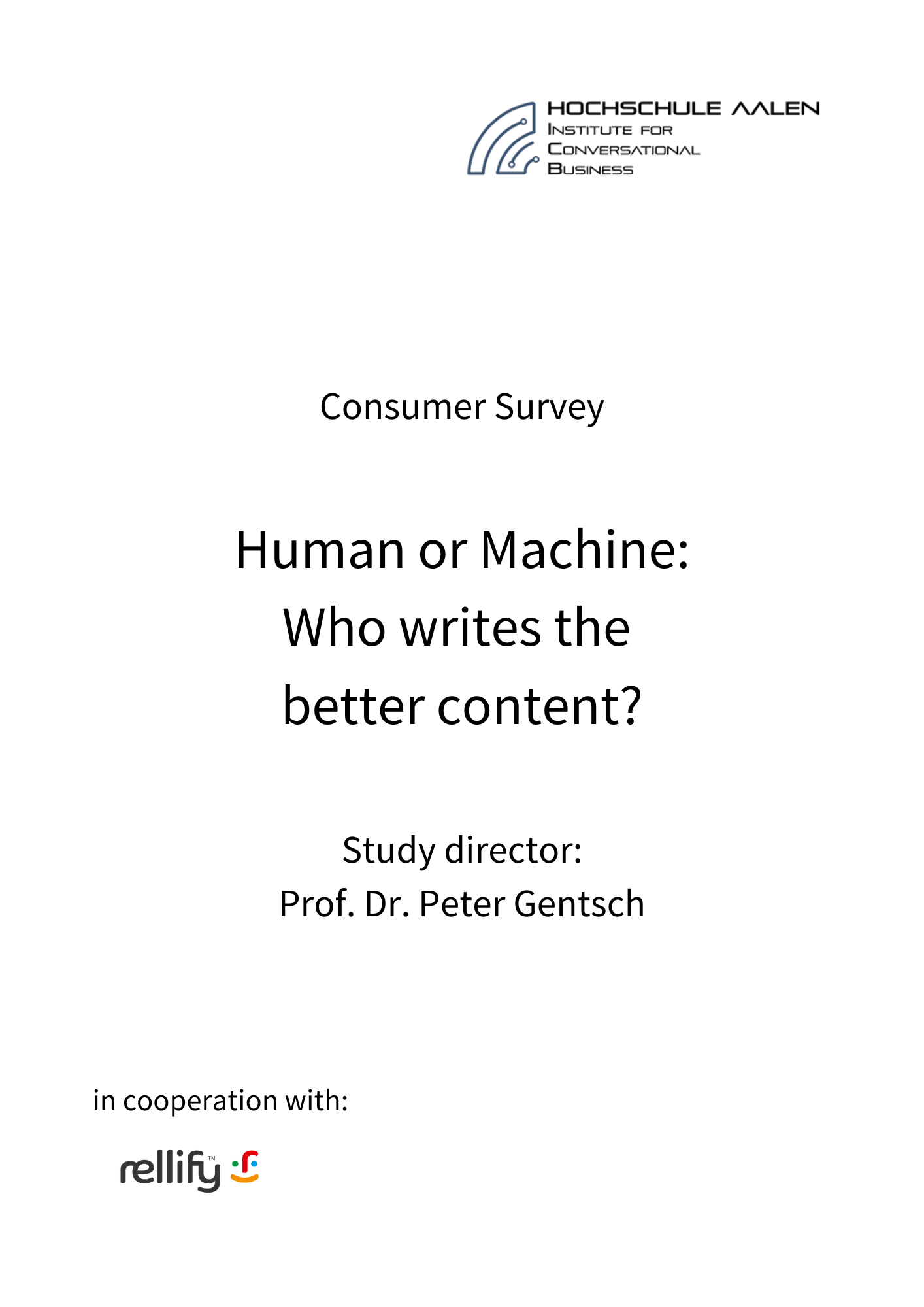
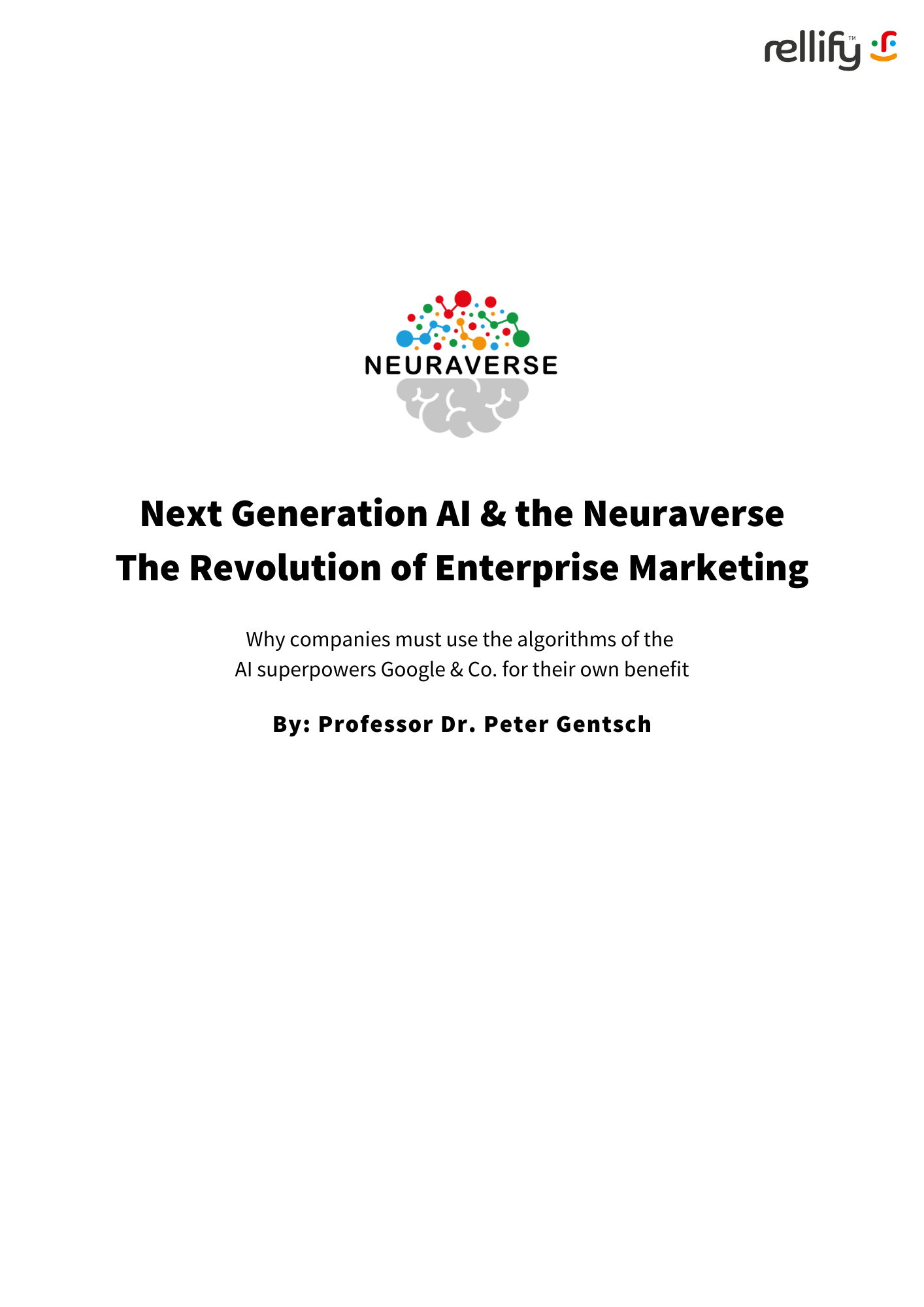
Whitepaper: Next Generation AI & the Neuraverse

The revolution of enterprise marketing
In his current whitepaper “Next Generation AI & the Neuraverse – The Revolution of Enterprise Marketing”, Prof. Dr. Peter Gentsch provocatively argues that companies must use the algorithms of the AI superpowers Google & Co. for themselves in order to survive in the long term.
You can see a brief insight into the theses developed by Prof. Gentsch in the white paper here:
- The AI used by Google & Co. no longer leads only to automation and process optimization – as in marketing automation, for example – but increasingly also to creative innovative processes
- The combination of intelligent algorithms and data becomes the key success factor for the operational and creative use of AI in marketing
- Businesses must try to understand and harness Google’s algorithms to survive
- For consumers, the influence of AI in search results means an increase in convenience and quality of results. For companies, it means pressure to increasingly produce content that fits the new visibility and relevance logic.
- For content to be successful on Google in the future and to prevail over all other content, it must comprehensively address a specific topic and offer real added value – i.e. be truly relevant to that topic
- Companies need to understand, as far as possible in real time, what the relevant trends and topics are, what customers are looking for, what content is particularly well received and how competitors are positioning themselves
- . . .
How can you use data to boost your marketing performance?

In this clip, we’ll show you the key factors for using data the right way to boost their content marketing success.
- KPIs: Clear key figures for measuring success
- Insights vs Noise: Distinguish between important data for content marketing and the data that can simply be ignored.
- Competition: tips to determine benchmarks and gain competitive advantage.
- X Factor: Learn what the X-factor is and what most companies neglect so far
Alan Edgett, Founder and CEO of The Gig Agency, recently led the webinar “How to Use Data to Drive Your Content Marketing Performance.”
The event was hosted by Dan Boberg, our General Manager in the US – A Q&A session between Alen Edgett and our General Manager.
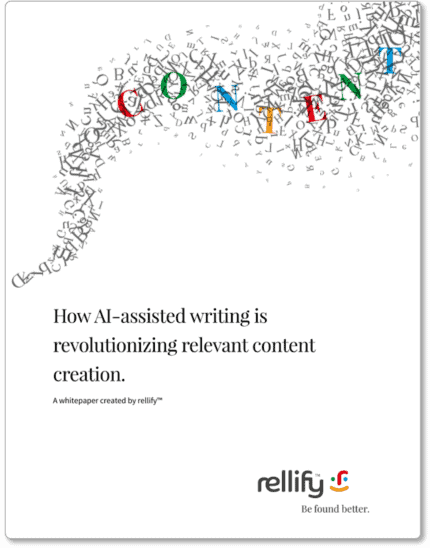
Our Whitepaper: „How AI-Assisted Writing is Revolutionizing Content Creation.“

- How can you use AI to produce relevant content?
- What impact does AI have on Google rankings?
- What roles does AI play in search engines?
AI is already being applied in many industries and fields, and marketing is no exception. In terms of influencing Google rankings and the amount of data that needs to be processed, only AI can deliver fast and successful results.
In this whitepaper, marketing expert Prof. Dr. Peter Gentsch explains why content production with AI support is a long-term and worthwhile investment.
Companies should assign content relevance, not SEO, top marketing priority. In doing so, resources will go into constantly monitoring and optimizing content relevance.